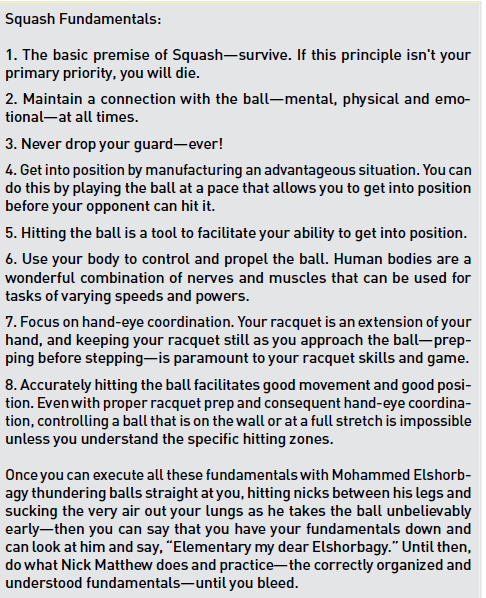
By Richard Millman
Sir Conan Doyle’s great detective Sherlock Holmes was wont to use his favorite throw away line: ‘Elementary, my dear Watson!’ on occasions when his sidekick finally understood how Holmes had solved the crime, or mystery, of the day.
And yet Holmes’ reasoning wasn’t entirely obvious. So what did Holmes mean by ‘Elementary?’
I believe that Holmes was highlighting the logical nature of his conclusions, drawn through consistent calculation and well-developed powers of observation, to the point where he was able to maintain his simple methodology even under the most difficult circumstances.
Recently I have been preparing one of my long-term junior students for the next stage of his life, as a cadet in the U.S. Naval Academy in Annapolis.
Basic training is something that often gives rise to emotions of boredom and fear. Endless repetition with senior classmen and PT instructors yelling abuse while you live through hell.
And yet this ‘basic’ training has saved countless lives as new behaviors become automatic and allow military personnel to function under life-threatening duress.
Squash shares this life and death decision-making process where fundamentals make the ultimate difference.
When I tell my students that squash is about life and death, it usually elicits a smirk from one or two who think I am over-dramatizing something as trivial as a game.
But the fact of the matter is that the survival instincts that we need on the squash court have been developed over the eons in actual life and death battles as the human species has evolved.
Players who don’t take this seriously will give away their ‘lives’ cheaply and, moreover, not develop those survival instincts to a level where they can depend on them in their lives outside of squash. In the case of my Navy recruit and other students who go on to similar careers, not developing these instincts will be a serious problem.
Sometimes players think that simple is boring and lose their focus. But fundamentals in squash are neither simple nor boring. They are extremely complex, fascinating and difficult—depending on how far you wish to develop your game.
If more players could learn to understand the fundamentals of the game in the first place, then they would have less trouble becoming proficient.
A full and detailed explanation in a short article is impossible, but online you will find a list with some brief descriptions to get you thinking.






